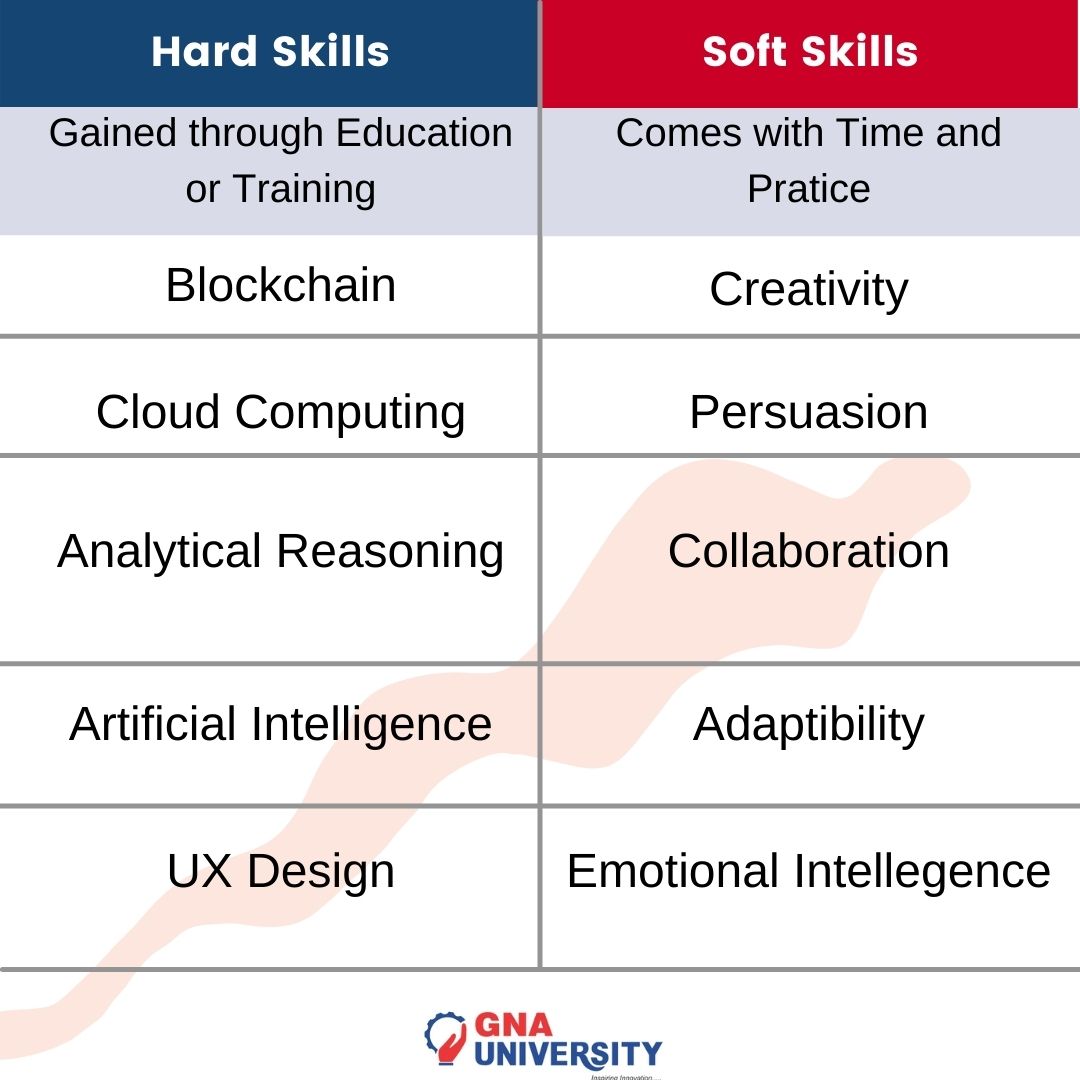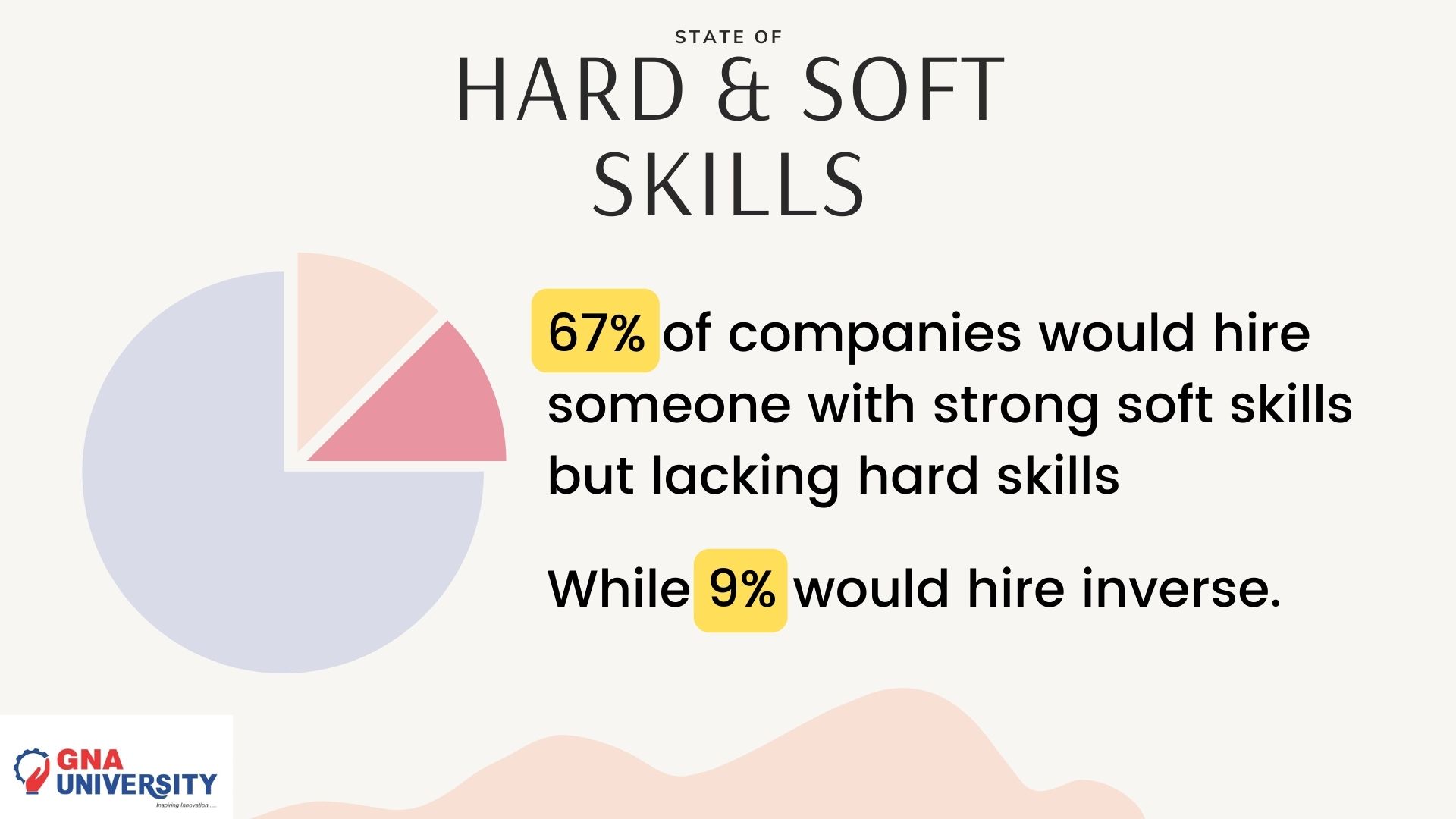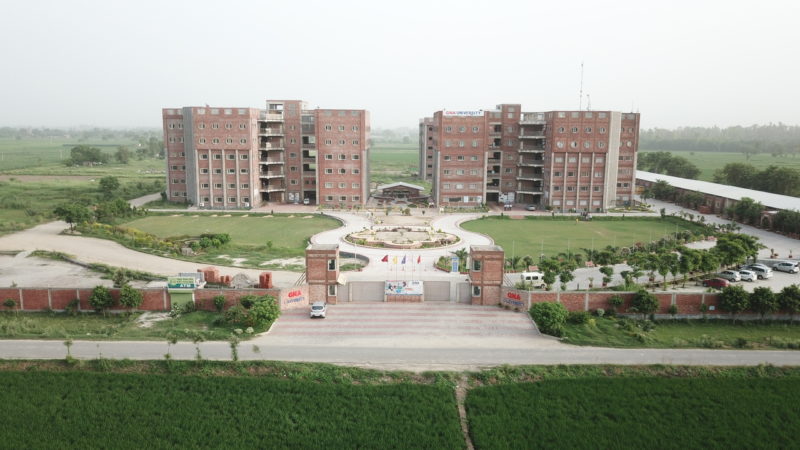Soft abilities refer to all aspects of generic abilities which have the cognitive components connected with non-academic abilities. Soft skills are recognized as the most crucial skills in today’s worldwide job market particularly in a fast-moving age of technologies. The reorientation of schooling that is 1 hope of education to sustainability also joins the value of the so-called gentle skills. The expression soft skills are used to describe skills that leaders and managers utilize which are subjective in character, including creative thinking, coping with people problems, training for performance, etc.

Hard Skills vs Soft Skills
Hard skills are quantifiable abilities that can be acquired through education, practice or training. These skills are often job-specific and can be explicitly listed in your resume or cover letter to match a certain job posting.
Hard skills are also often industry-specific. For example, a data analyst might want to list hard skills like statistical modeling or Python. In contrast, a teacher would probably want to highlight skills like educational technology proficiency and teaching certifications.

Most in-demand hard skills:
Blockchain
Cloud computing
Analytical reasoning
Artificial intelligence
UX design
Business analysis
Affiliate marketing
Sales
Scientific computing
Video production
We’ll only discuss the most important soft skills that can help you in landing a job easily.
Most in-demand soft skills:
Creativity
Persuasion
Collaboration
Adaptability
Emotional Intelligence
Critical & Logical Thinking
Flexibility
Teamwork
Work Ethics & Attitude
Soft Skills
While hard skills can get you past an applicant tracking system (ATS) and get your resume looked at, soft skills are what help you land the job. Your soft skills can also be thought of as “people skills” — all the things you’re good at that might not necessarily be job-specific.
One struggle that many people face when determining their soft skills is that they are much more difficult to quantify. How can you show employers that you’re a skilled communicator, leader or problem solver when there’s no set certification or course to prove your proficiency?
For you to make an impression on your interviewer, your soft skills are something that should be shown, not told. You can simply list soft skills on your resume, but it’s far more effective to integrate these soft skills into examples on your resume or during an interview.

Critical & Logical Thinking

Have you ever wondered why critical thinking is important? Critical thinking is a profoundly important skill in the hierarchy of soft skills.
For example, critical and logical thinking helps to assess priorities and improve time management, it enables strong project management which can help with teamwork.
Critical thinking in its simplest form is turning data into action. Or, in a less tech-sounding way, it is essentially the act of using the information to make an informed decision.
Critical thinking covers a range of skills in itself. Although it forms just one part of our soft skills series, it summarizes a range of useful tools for every day working life and works in conjunction with a number of the other skills we’ve talked about.
Here are some of the most important areas of critical thinking skills in the modern workplace.
1. Applying previous experience
Skills aren’t the only things that are transferable. Your prior experience is a valuable asset and it doesn’t just need to come from the world of work. The ability to transfer knowledge from previous jobs, education, or general life experience is a vital part of engaging in critical thinking.
2. Using logic under pressure
A large part of critical thinking comes from understanding the logical progression of any given situation. This ability to plan outside of the obvious track is a vital part of problem-solving as well as contingency planning.
3. Emotional intelligence
There is a common misconception that emotional intelligence lies outside the realm of the critical. However, understanding the needs and emotions of others is incredibly important when it comes to navigating a great deal of situations in the workplace.
4. Analytical understanding
Another important component of critical thinking is being able to break down analytics and data. This can be everything from generating a digital marketing and revenue report for a client to understanding the figures from the latest stock take.
5. Tying together contextual information
Context is hugely important in just about any work scenario. Being able to tie together a whole bunch of contextual information is how all of the elements of critical thinking really come together.
6. Open-mindedness
The cherry on top of the near-perfect critical thinking cake is open-mindedness. More specifically, I mean being open to trying new things, understanding new ways of thinking, and attempting to solve problems or conflict in a new way.
Other people’s perspectives are hugely valuable, so being open to both feedback and help go a long way to improving these skills.
Flexibility
Flexibility is an important soft skill since it demonstrates an ability and willingness to embrace new tasks and new challenges calmly and without fuss.
Flexible employees are willing to help out where needed, take on extra responsibilities and can adapt quickly when plans change.
Employers are looking for candidates who can show a willing and upbeat attitude, and who are unfazed by the change.
Teamwork
As the name suggests, Teamwork means working with a group of people who have a common interest and a common goal to achieve. A team is a group of people who have a common goal and purpose.
Teamwork means that people will work with each other and will try to cooperate with each other, using their skills individually, and by providing constructive feedback, forgetting every personal conflict between them.
A team must include a minimum of 2 or more members, and most teams home in size from 2 to 100. Sports teams generally have fixed sizes based upon set rules, and work teams may change in size depending upon the phase and complexity of the target. Teams got to be ready to leverage resources to be productive (i.e. playing on the fields or meeting spaces, scheduled and decided times for planning, guidance from coaches or supervisors, support from the organization, etc.), and clearly defined roles within the team and players so as for everybody to possess a transparent purpose.
Work Ethics & Attitude
Creating a positive attitude is one of the best things you can do for your productivity and your workplace happiness. People who have a consistently positive attitude are seen as approachable and can build more effective workplace relationships. A positive attitude also serves you well when you face challenges or setbacks – it breeds resilience. Coupled with a positive attitude, a strong work ethic helps you build strong relationships with teammates and superiors. A solid work ethic also helps you find reward in the work you do, and shows a dedication not just to goals and outcomes but to your overall professional development.
Here are some ways to build on your work ethic:
- Come to meetings prepared and ready to go.
- Show dedication and commitment to coming up with the very best results for your projects.
- Understand the task at hand and that your teammate’s time is just as valuable as your own. We are all dealing with deadlines and workload but it’s best to figure out how to manage this from the get-go as it’s not only extremely valuable for your teammates. It also helps you to have a good balance between work and life – and that’s what we’re all after!
Conclusion
Soft Skills have become today’s Hard Skills. This is something to think about as we move further into the information age and away from the industrial age. It’s not that we will do away with hard skills. Trades, factories, mining, the list goes on, will still be around and those working in them will always need those hard, technical skills to do the job. But more and more, even for occupations in those trades, soft skills are being recognized as a critical component of the whole worker.
If you want to improve on your soft skills or have some you need to develop to work in a certain role, here are some tips to help:
Participate in self-reflection. In order to improve, you must first be honest about where your shortcomings are. This isn’t always easy. If you are struggling, ask a friend or family member to help you identify your true strengths and weaknesses.
Look for online training. Once you have identified the areas you need to improve, look for some online courses that will help you learn skills that would be useful in the workplace.
Observe others. Look to others who exemplify the soft skills you want to improve. If you have a relationship with them, ask for their advice or coaching.
Practice. All soft skills will improve with practice. Once you have obtained training or coaching, practise using your newfound skills with friends or family before your interview. This will give you the confidence to take these skills into the workplace.

GNA University – Best emerging university in India








